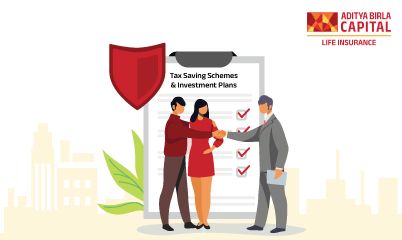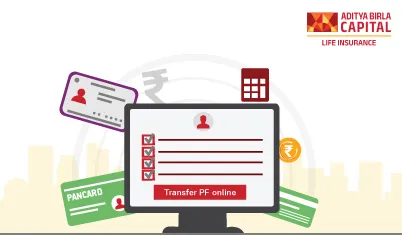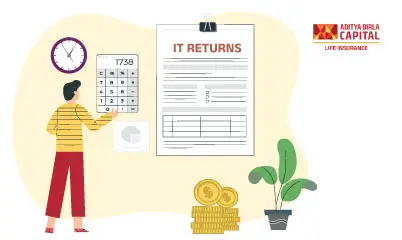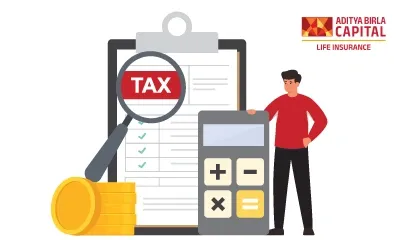Saving money on taxes is a crucial aspect of everyone's life. Tax savings are possible under Section 80C or 80CCC. Looking at the options available nowadays which offer a bunch of benefits, people are interested to know more about them. Not all investing options will yield large profits and have the same dangers.
The tax filing season in India begins in April for salaried and non-salaried individuals. Most individuals are interested in finding an investment that may assist them in avoiding paying taxes and offer the benefit of tax exemption.
What is Section 80C?
Understanding what Section 80C of the Income Tax Act of India means is crucial before learning about the possibilities available under that section.
The investments made by the investor are exempt from paying the tax up to a maximum of Rs. 1,50,000, as per Section 80C. Bonds, ELSS, fixed deposits, life insurance, PPF, NSS, and other investments are all possible.
What are the requirements for Section 80C eligibility?
Individuals and Hindu Undivided Families (HUF), including Indian residents and NRIs, are covered under Section 80C of the Indian Income Tax Act. This clause does not cover partnerships, corporations, and other legal entities.
Top investments for tax savings under Section 80C:
ELSS or tax-saving mutual funds provide you with the twin benefits of tax savings and increased investment returns.
Some benefits of ELSS investing include the following:
- Tax savings of up to Rs. 46,800
- A locking period of three years at its shortest.
- It provides higher returns than FD, PFF, or NPS.
- Additionally, interest income is partially taxable.
The other investment options under section 80C are:
- ULIP – Unit Linked Insurance Plans
- Tax Savings Fixed Deposits
- PPF – Public Provident Fund
- EPF – Employee Provident Fund
- NPS – National Pension Scheme
- NSC – National Savings Certificate.
Payment options for saving taxes under Section 80C are:
- Life Insurance Premium
- Children Tuition Fees
- Repayment of Home Loan
Now, let us see each one of them for a better understanding.
1. ULIP – Unit Linked Insurance Plans:
○ It is a hybrid investment and insurance plan in which a portion of the funds is invested in the stock market, and another part is used for insurance.
○ Important Budget 2025 Update: ULIPs with annual premiums exceeding ₹2.5 lakh will now be treated as capital assets. This means that profits from redeeming these ULIPs will be taxed as capital gains.
■ Long-Term Capital Gains (LTCG): If held for more than 12 months, gains will be taxed at 12.5%.
■ Short-Term Capital Gains (STCG): If held for less than 12 months, gains will be taxed at 20%.
■ ULIPs issued before Feb 1, 2021 also fall under capital gains tax.
■ ULIPs with annual premiums below ₹2.5 lakh continue to have tax exemption under section 10(10D)**.
○ Under Section 80C, tax breaks are available for investments up to Rs. 1.5 lakh. Investors can purchase a ULIP for themselves, their spouse, or their kids.
○ The return is market linked, and therefore not guaranteed#.
2. Tax savings fixed deposits:
○ These are comparable to standard fixed deposits but differ because the lock-in term is typically five years with a scheduled bank notified by Central Government.
○ You can save up to Rs. 1.5 lakh on taxes under Section 80C.
○ The interest rate might range from 5.5% to 7.5%, although it varies from bank to bank. You should also be aware that interest received under this plan is subject to taxation.
3. EPF – Employee Provident Fund:
○ EPF is a retirement program for all salaried individuals. Every organisation must take off 12% of an employee's basic salary plus DA and deposit it in the EPF account. It is just not the 12% contributed by the employee that goes under EPF; even the employer has to contribute the same amount and deposit it in their accounts.
○ The primary prerequisite is the minimum wage requirement, which must be at least Rs. 15,000. The most recent interest rate set by the government was around 8.25% (FY 2024-25), and any employee who quits their employment must follow the withdrawal rules.
4. NPS – National Pension Scheme:
○ As the name implies, the government launched this program to enable working and unorganised professionals to receive pensions after retirement.
○ Under Section 80C, investments up to Rs. 1.5 lakh may qualify for tax deductions. If an NPS contribution exceeds the Section 80C limit of Rs. 1.5 lakh, an additional Rs 50,000 deduction is available under section 80CCD
○ Any citizen between 18 and 70 may open it, and it has a partial withdrawal option after certain years.
5. PPF – Public Provident Fund:
○ The Public Provident Fund, also known as PPF, is a long-term investment program run by the Indian government. It can also be opened by salaried and unemployed people as long as they are citizens of India. Since it is a long-term investment, a lock-in period of 15 years may be increased by any number for a block of five years.
○ This plan's interest rate is set by the government, and is subject to change.
○ You can open a PPF account with Rs. 500 and up to Rs. 1.5 lakhs. Tax-free interest is an extra benefit offered by this plan.
6. SSY - Sukanya Samriddhi Yojana:
○ In addition to the options mentioned above, you can invest in Sukanya Samriddhi Yojana, one of the governments of India's most well-known programs. The Indian government started this program to educate and improve the condition of every girl child.
○ Up until the age of 10, parents or guardians may open an account on the girl's behalf. Once the child turns 18, they can withdraw up to 50% of the funds.
○ The most that may be invested with an interest rate set by the government, every financial year is Rs. 1.5 lakh.
Conclusion
Investing your money can be an easy and efficient way to lower your tax obligation legally. There is no restriction on how many tax-free investment products an individual may purchase. The only information you need to be aware of is the requirements for qualifying and the advantages it offers. So, make prudent plans and start investing at the beginning of the fiscal year.
Comparing your financial possibilities is always a smart move before making a choice. You can analyse the advantages and disadvantages and, if necessary, consult someone knowledgeable about the subject.










